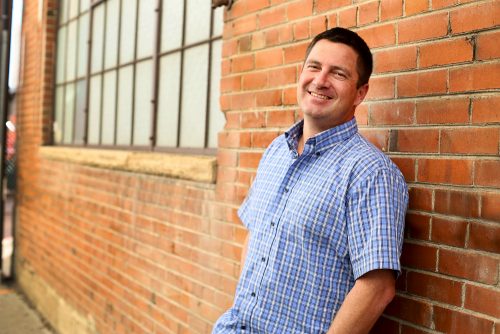Update: The story was updated to reflect an Organa Brands’ executive organizational change that occurred last year.
Since its founding in 2010, Organa Brands’ “maniacal focus on market expansion” has landed its marijuana edibles, vape cartridges, dab tools, distillates and beverages in 11 states and three countries.
The company announced Monday it will enter its next stage of evolution — transforming from a North American cannabis powerhouse to a global behemoth — without one of its founders at the helm.
Organa Brands co-founder and Ralph Morgan is stepping down from his executive role at the firm, handing the reins to the trio of company presidents, Chris Driessen, Jeremy Heidl and Chris McElvany.

“Ralph is truly leaving this place in a really great spot,” Driessen said.
The planned transition has been a couple of years in the making, Morgan and Driessen told The Cannabist. Last year, the company removed all C-level titles — including Morgan’s CEO title — and named the four partners president of respective verticals.
The Denver-based company has five vaporizer, edibles and extraction brands under its umbrella: O.penVape, a maker of vape cartridges; Bakked, a provider of distillate and tools for dabbing; Magic Buzz, a maker of cannabis beverages; District Edibles, a maker of gummy edibles; and Organa Labs, which specializes in extraction and distillation services.
The firm is turning a tidy profit and boasting year-to-date revenue growth of 30 percent, Driessen said, declining to disclose specific figures, citing the company’s status as privately held.
To provide some perspective, Driessen said, a Forbes article last year that reported Organa Brands posted $100 million in revenue in 2016 was an “accurate depiction.” The company estimates that it now sells an edible, vape cartridge, dab tool, marijuana drink or distillate every five seconds.
Morgan will retain an ownership stake in Organa Brands and serve on the company’s board.
However, the entrepreneur said he plans to invest his time an energy in a completely new venture: a wellness company centered on CBD, or cannabidiol, derived from hemp. It’s a dream that has been on the back burner for several years now, because such an endeavor would be too grand of a gamble for Organa Brands, Morgan said.
“It’s irony at its finest,” he said, “a THC company saying we can’t take on the risk for selling hemp products. But that’s where we’re at.”
With its debut at the world’s largest natural products trade show last month, CBD is officially buzzworthy, even as the regulatory future of the non-psychoactive cannabis compound — as well as the hemp from which it can be derived — remains fuzzy.
While the 2014 Farm Bill legalized parts of the cannabis plant, The U.S. Drug Enforcement Administration views hemp-derived CBD as illicit; court battles rage on over the language of federal law. In the meantime, developers of cannabinoid-rich hemp extracts are bracing for the anticipated FDA approval of Epidiolex, a CBD-based pharmaceutical drug.
Organa Brands will continue to focus on marijuana products, Driessen said. The high-growth company has attracted the attention of potential suitors, who have called to kick the tires, he said.
Maybe one day, a couple of years down the line, offers for Organa Brands will get too large to ignore, Driessen said. But for now, the firm will embrace the role of the acquirer.
“We’re not quite ripe yet,” he said.
